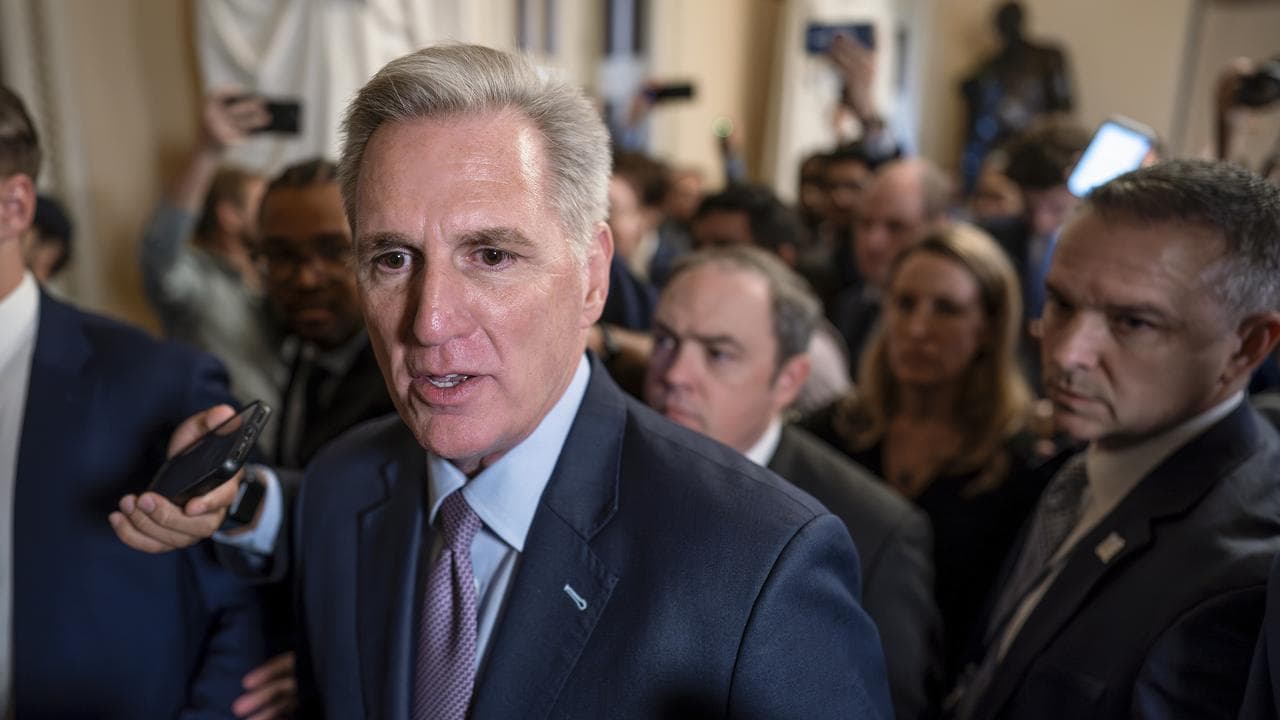
A handful of Republicans in the US House of Representatives has ousted Republican Speaker Kevin McCarthy, as party infighting plunged Congress into further chaos days after it narrowly averted a government shutdown.
The 216-to-210 vote on Tuesday marked the first time the House removed its leader, with eight Republicans voting with 208 Democrats to remove McCarthy.
The rebellion was led by Representative Matt Gaetz, a far-right Republican from Florida and McCarthy antagonist who accused the party leader of not doing enough to cut federal spending or to stand up to Democratic President Joe Biden.
"Kevin McCarthy is a creature of the swamp. He has risen to power by collecting special interest money and redistributing that money in exchange for favours. We are breaking the fever now," Gaetz told reporters after the vote.
It was the latest moment of high drama in a year when the Republican-controlled House brought Washington to the brink of default and the edge of a partial government shutdown.
Republicans control the chamber by a narrow 221-212 majority, meaning they can afford to lose no more than five votes if Democrats unite in opposition.
McCarthy's ouster as speaker essentially brings legislative activity in the House to a halt, with another government shutdown deadline looming November 17 if Congress does not extend funding.
The White House said it hoped the House would move swiftly to choose a replacement speaker, a position second in line to the presidency after the vice president.
McCarthy does not plan to try to run for speaker again, Politico reported, citing sources.
The vote left Congress in uncharted waters as it scrambles to update farm-subsidy and nutrition programs, pass government funding bills, and consider further aid to Ukraine.
It was unclear who would succeed McCarthy.
McCarthy had repeatedly angered Democrats in recent weeks, including by launching an impeachment inquiry into Biden and on Saturday by giving them little time to read a stopgap spending bill to avert a government shutdown that he needed their votes to pass.
Democrats could have saved McCarthy but, after considering it, said they would not help Republicans resolve their own problems.
Other Republican leaders like Steve Scalise and Tom Emmer could possibly be candidates, though neither has publicly expressed interest. Representative Patrick McHenry, was named to the post on a temporary basis.
The last two Republican speakers, Paul Ryan and John Boehner, retired from Congress after clashes with their right wing.
In debate on the House floor, Gaetz and a handful of allies criticised McCarthy for relying on Democratic votes to pass temporary funding that headed off a partial government shutdown.
McCarthy's supporters, including some of the chamber's most vocal conservatives, said he had successfully limited spending and advanced other conservative priorities even though Democrats control the White House and the Senate.
McCarthy found no support from Democrats during the roll-call vote, despite speculation that some might vote for him to keep the chamber on an even keel.
Democrats said they viewed McCarthy as untrustworthy after he broke a May agreement on spending with Biden.
Gaetz was one of more than a dozen Republicans who repeatedly voted against McCarthy's bid for speaker in January. McCarthy ultimately secured the gavel after 15 rounds of voting. To win the job, McCarthy agreed to rules that made it easier to challenge his leadership.
McCarthy supporters have said Gaetz was motivated by a hunger for publicity, a chance to win higher office, or resentment over an ongoing ethics probe into possible sexual misconduct and illicit drug use.
Gaetz has denied wrongdoing and said he is not motivated by a dislike of McCarthy.
"This isn't a critique of the individual, it's a critique of the job. The job hasn't been done," he said.




